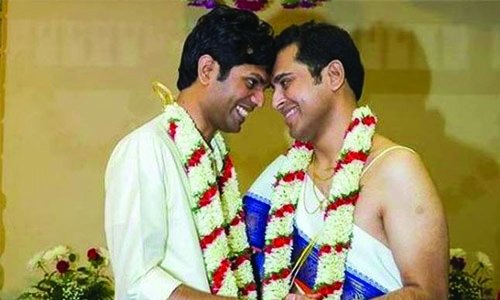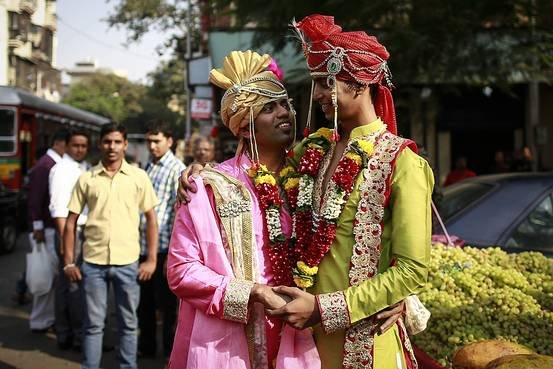
Gay marriage, inheritance, adoption laws unlikely; 'majoritarian' view will keep State, SC away in INDIA
After the Supreme Court judgment in Navtej Singh Johar versus Union of India decriminalising gay sex, a demand has risen for permitting gay marriages, inheritance and adoption.
I am afraid this can only be done by legislation, which is presently not possible because the majoritarian opinion in Indian society is highly conservative and hence strongly against it. No Indian politician will dare to will openly support it for fear of losing elections. In fact, the majority opinion in India is probably against gay sex, but the Supreme Court could rely on Articles 14 (the equality provision) and 21 (the right to life and liberty, which has been judicially interpreted as the right to a life with dignity) to partially strike down Section 377 of the Indian Penal Code.
But the validation of gay marriages, inheritance and adoption cannot be done by the Supreme Court by striking down any provision. It will require legislation.

Presently marriages in India are governed by personal laws of the religious communities, and these envisage marriage between a man and woman. Section 5(iii) of the Hindu Marriage Act, 1955, which specifies the "conditions for a Hindu marriage" says that the bridegroom must be at least 21 years old, and the bride 18 years old. The words 'bridegroom' and 'bride' obviously mean a heterosexual marriage.
The Section 5 of the Act applies on Hindus, Buddhists, Jainas or Sikhs by religion as well as "forms or developments of Hindu including a Veerashaiva, Lingayat or a follower of the Brahma, Prarthana or Arya Samaj". It also clearly states that a marriage may be solemnised between two Hindus, only if the conditions set under it are fulfilled.
Even when an inter religious marriage (civil marriage) is sought to be performed under the Special Marriage Act, 1954, it has to be between a man and a woman, as is evident from Section 4(c) of that Act which says that the parties must be a male not below 21 years and a female not below 18 years. The Special Marriage Act, 1954, allows couples to marry irrespective of the religion or faith followed by either party.
So without change in the law how can a gay marriage be performed? And legislation is ordinarily the job of the legislature, not the judiciary.
Inheritance among Hindus is governed by the Hindu Succession Act, 1956. Section 8 of that Act read with the Schedule regards a widow as an heir of a man dying intestate (ie, without leaving a will), and Section 15 regards a husband as an heir of a dead woman. The words 'widow' and 'husband' obviously refer to a man married to a woman, and not a same sex relationship.
Adoption is not even permitted among Muslims, and among Hindus unless the parties adopting are married only one of them can adopt.

It was easy for the Supreme Court to validate gay sex because it had only to read down Section 377 IPC to make it constitutional. But by what judicial feat can it legalise gay marriages, inheritance or adoption?
No doubt in Obergefell versus Hodges decided in 2016 the US Supreme Court declared that all 50 states in USA must recognise gay marriages on the same footing as marriages between persons of opposite sexes with the same rights and responsibilities, but it is doubtful that the Supreme Court of India will go so far. Public opinion in USA favoured such judicial activism, but in India will strongly oppose it.
Moreover, in USA some states like California had already made legislation validating gay marriages, so it was easy for the US Supreme Court to say that the equality provision in the US Constitution will be violated if other states do not permit gay marriages, but in India no state permits gay marriages. So it is doubtful that the ruling in Obergefell versus Hodges case can be relied upon in India.
THANK YOU FOR READING MY POST ..

Hi! I am a robot. I just upvoted you! I found similar content that readers might be interested in:
https://www.firstpost.com/india/section-377-verdict-gay-marriage-inheritance-adoption-legislation-unlikely-majoritarian-view-will-keep-state-sc-away-5134701.html